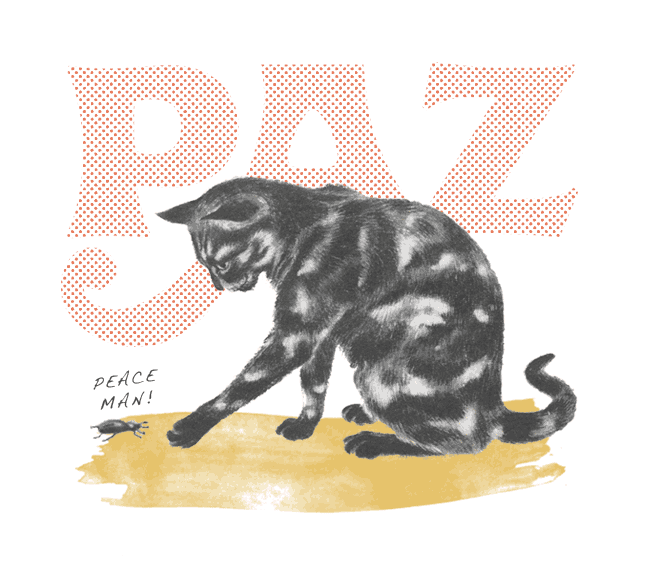Holistic Medicine
Holistic is an often misinterpreted word, though its definition is important. It’s how we define ailments and foster health; it’s how we recognize the whole picture and forge relationships.
Holistic medicine is the art of taking into account the WHOLE environment in which an animal might live- this includes YOU (the caregiver), your childhood, your previous experience with animals, where you live, how you live, what you feed your pet, how you interact with your pet, your experiences with human doctors, your and your pet’s interactions with your family, and any other relevant clinical experiences. There are many other potentially important questions. How did you acquire your fur baby? Why or how did you name your pet? What was your motivation to get a pet? How did you choose your pet’s diet? What style of medicine resonates with you? What is your level of understanding when it comes to physiology? They’re all extremely important when you discuss holistic medicine with your doctor and in finding the best way to translate that belief system into an effective treatment.
Looking at the whole picture may help break the tedious cycle of going to the vet looking for answers and leaving with no further understanding on how to prevent recurrence. Those oft-prescribed medications designed to address the symptoms may absolutely be the right starting point, but it’s paramount to follow through, understand, and address the ultimate causes. There may be an alternative approach that can amplify conventional medicine, and there may just be a totally different approach altogether. We can even invoke the term- integrative medicine- mixing two different ideals to find the right solution. It’s not necessarily better, but it can offer new insight.
Holistic medicine in regards to vaccines? I’m glad you asked. Vaccines are the most important part of preventative medicine and have worked effectively to minimize many fatal diseases in our pet population. There is a responsible way to administer these vaccines- this also plays into a holistic approach. Do you need all of the vaccines? Does your pet’s lifestyle lend to needing vaccines more regularly? What is the rattlesnake “vaccine”? These are questions that are fundamental to the theory of HOLISTIC medicine.
Animal Behavior
What is a Veterinary Behaviorist?
A veterinary behaviorist is the equivalent of a psychiatrist, but for animals. A board-certified veterinary behaviorist has completed veterinary school, then an internship or equivalent, followed by a 3-year residency in behavior under a board-certified mentor. After finishing all requirements and passing a 2 day exam, they become a diplomate of the American College of Veterinary Behaviorists. Dr. Sirois has completed her residency and is currently studying to take her board exam.
What does the behavior service treat?
Dr. Sirois and her team treat a wide range of emotional concerns. The list includes anxieties including separation anxiety, fears and phobias including noise phobia, aggression, problems between pets within a household, compulsive disorders, and more.
What species does the behavior service treat?
Dr. Sirois provides comprehensive and tailored treatment to all species. Veterinary behaviorists receive training in the treatment of dogs and cats, as well as horses, farm animals, reptiles, birds, small mammals, and exotic species.
What should I expect at the initial appointment?
Prior to the appointment, the doctor will review a questionnaire form that you have completed, as well as all medical records related to your pet. During the appointment she will ask follow up questions while observing your pet’s body language and interactions with you and her team. She will also evaluate with you any videos that you bring of your pet’s behavior. Then she will explain any diagnoses and discuss options for your pet’s treatment.
A physical exam will be performed, typically with you present, if it will not cause your pet too much stress and is safe for everyone involved. Your pet’s doctor may recommend certain diagnostic tests like bloodwork if appropriate for your pet.
You and the doctor will then work together as a team to determine the best treatment plan for your pet. Since behavior therapies are not one-size-fits-all, each treatment plan is tailored to the individual. In some cases your doctor may recommend a medication or supplement in addition to behavior modification if appropriate to help you and your pet reach your goals.
How long is the appointment?
The initial consultation takes 1-1.5 hours and is conducted in-person. Follow up appointments range from 15 to 45 minutes and may be done in person or virtually, depending on your pet’s needs.
My pet takes something (medication or supplement) beforehand to make vet visits less scary. Should my pet take these meds before the consultation?
If they help, then yes! We want your pet’s visit to be as low stress as possible. That’s what we’re all about! The doctor will observe your pet and also use your reports of their behavior to diagnose and treat your pet. This means that the doctor does not need to see your pet at their most stressed in order to treat them appropriately.
How do I schedule an appointment?
Glad you asked! If you will email us at petshrink@pazvet.com, the behavior team can start the process and get you scheduled.
Testimonials
“We are so lucky to see Dr. Sirois at PAZ for our doggie! When we came to Krista, our dog was a shaking mess. Peeing inside and barking at every little thing. He would be so nervous all day that he’d whine and shake next to me. Dr. Sirois helped us find the right balance so he could relax and be a dog again. We are so thankful for her continued attention and grace. We’ve been seeing her for over a year and are on a great maintenance schedule now. Thank you Dr. Sirois and the staff at PAZ West!
— Rebecca Conner
“Dr. Sirois and Vicente have been an absolute godsend for Violet’s journey towards improved mental health. When I first welcomed Violet into my life, her emotional and behavioral struggles seemed insurmountable, especially after a traumatic incident at a tender age. Despite the challenges, I firmly believed that every dog deserves a chance at a fulfilling life.
Enter Dr. Sirois, and Vicente – a team that truly understood the power of compassion. Their unwavering dedication to getting Violet’s medications right, paired with innovative training techniques I learned from Austin’s best trainers made a remarkable transformation in Violet. She evolved from a fearful and defensive pup into a completely renewed spirit.
Working alongside Dr. Sirois and Vicente, we honed in on the perfect medication balance for Violet and considered both timing, and situations where Violet might need extra support. All of this enabled Violet to embrace ‘think-and-learn’ instead of instinctual fear responses. This breakthrough made training her a joyful and gratifying experience. Gradually, Violet blossomed into a sweet and affectionate girl, eagerly forming bonds with humans at doggie daycare and learning to make friends with guests in our home.
I cannot express enough gratitude to Dr. Sirois for being an invaluable part of Violet’s healing journey. It truly took a village of caring professionals from the Austin dog training and veterinary community to uplift and support Violet’s progress. Together, we have given her a chance at a beautiful life, and I will forever be indebted to these exceptional individuals for helping me help Violet achieve her full potential. Dr. Sirois was an important part of this community.”
— Jennifer Davis










